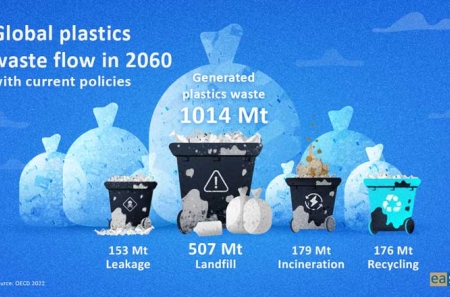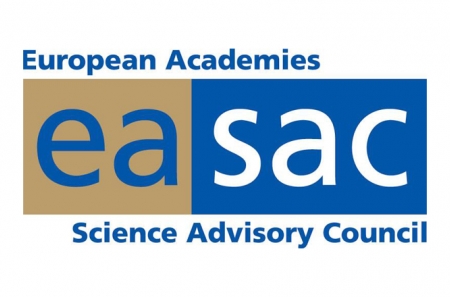
Donald Fitzmaurice: Time to Build Home-Grown Businesses that Can Compete Globally
12 November 2014Donald Fitzmaurice is a founder and chief executive officer of Brandtone, a mobile marketing company headquartered in Ireland that conducts campaigns in emerging markets for brands, including Unilever, Syngenta, SABMiller, Kellogg’s, PepsiCo and BP.
Since founding the company five years ago, Donald has led Brandtone’s expansion from one market to ten, establishing offices in South Africa, Kenya, Nigeria, Turkey, Russia, Brazil, the United States, India, China and Indonesia.
Donald is an advocate of permission-based consumer engagement, helping brands to conduct opt-in campaigns that profile consumers and build loyalty in addition to increasing sales. Donald has extensive experience as an entrepreneur and investor in early stage companies focused on opportunities in emerging markets. His previous role was as executive chairman of Intivation, the global leader in solar-powered mobile handsets, meeting the needs of power-challenged users.
Prior to Intivation, he was a partner with DFJ-ePlanet Capital, recognised as a pioneer of the global venture capital business model, and a professor of chemistry at University College Dublin where he taught and researched nanostructured materials.
Ireland as a small, open, knowledge-based economy faces many challenges in the modern world. These challenges include competing with similar (typically emerging) economies whose competitiveness is, on occasion, owing to the fact that they have copied the Irish model successfully.
Despite these challenges, the Irish model of being a committed member of the European Union and investing in a young, highly educated, English-speaking workforce—allied to a competitive corporate tax regime—remains a compelling proposition. This is particularly true when it involves investing in young science, technology, engineering and mathematics (STEM) graduates and postgraduates.
It is nevertheless the case that in the future we will face greater competition for the foreign direct investment that we have been previously successful in attracting to Ireland over the past five decades. This investment includes that from leading multinationals in the technology, medical device, pharmaceutical and other sectors.
For this reason, we will need to become even more successful in establishing successful home-grown businesses that can compete on the global stage.
These businesses that can compete on the global stage will increasingly be companies that develop new or improved knowledge-intensive products and services that embody high value and high defensibility.
There are many examples of indigenous enterprises that have successfully brought knowledge-intensive products to the market, led by teams that are comprised of STEM-trained professionals who have developed the product, and business/humanities-trained professionals who have commercialised it.
In the future, many of our most successful indigenous enterprises will bring knowledge-intensive services to the market. Moreover these companies, led typically by individuals with a business/humanities training, will need the expertise of STEM professionals to ensure these services are distributed and supported globally online. These professional will not just include technologists and engineers, who will develop and maintain the cloud-based platform from which these services will be distributed and supported globally, but they will also be mathematicians and scientists, who will develop the algorithms (increasingly informed by insights from advances in the behavioural and cognitive sciences) that will make sense of the vast amount of data generated in the course of providing services through the cloud.
A risk is that we will fall into the trap of thinking that we need STEM graduates with business/humanities training, or business/humanities graduates with STEM training. In fact, what we need is world-class STEM and business/humanities graduates, who know how to work together in an entrepreneurial environment with, to borrow an expression from the peace process, ‘parity of esteem’.
So this leads me to two opportunities that I would like to see universities and institutes exploit as a matter of urgency, and in a wholehearted and committed fashion.
Firstly, to regularly expose graduates and postgraduates, from all disciplines, to entrepreneurial individuals and organisations that embody the collaborative culture that lies at the heart of successful knowledge-intensive enterprises.
Such individuals and organisations have used the combined expertise and experience of STEM and business/humanities professionals to innovate and to bring new knowledge-intensive products and services to the market. Through this exposure graduates and postgraduates will come to better understand and respect the roles and contributions of their peers from other disciplines. They will also come to appreciate that such organisations only recruit the best—so they need to get a good degree—and to understand that buying into this culture of collaboration and respect is non-negotiable if they seek to achieve corporate success.
Secondly, to similarly expose academics of all disciplines to such individuals and organisations by ensuring that they sit alongside their graduates and postgraduates as peers and participate fully in these and other related activities.
In proposing the above, I am allowing for the possibility that the greater challenge and need relates to the experiences and attitudes of academics of all disciplines in our universities and institutes. Specifically, those attitudes characterised by the absence of mutual appreciation and respect for other disciplines; acceptance of mediocrity from students; and, most significantly, a culture that raises the achievement of the brilliant individual above all other considerations.
In drafting this piece, I reflected on the structures of the Academy, and how they institutionalise many of the above-mentioned issues. On the other hand, I also reflected on the fact that while this represents a challenge in respect to remaining relevant, it equally represents an opportunity to show leadership.
About This Series
In November 2014 to coincide with Science Week the Academy and Silicon Republic collaborated to produce an opinion series authored by selected members of the Academy around the topic of STEM Education, particularly focusing on primary and post primary level.
Authors outlined their respective opinions on the current practices and future initiatives that may advance STEM Education in Ireland. The views and opinions expressed by the authors were their own and did not reflect, the position of the Academy, but were simply an illustration of the various opinions reflective of the diverse Academy membership.
This article was originally published on 12 November 2014 on Silicon Republic.
Silicon Republic is Ireland's leading technology news service covering the ICT industry, communications, CIO strategy, venture capital investment, academia, as well as emerging areas like innovation and discovery, green tech and the digital lifestyle. It has been voted Ireland's leading technology website six years in a row.
This work is licensed under a Creative Commons Attribution 3.0 Unported License.



